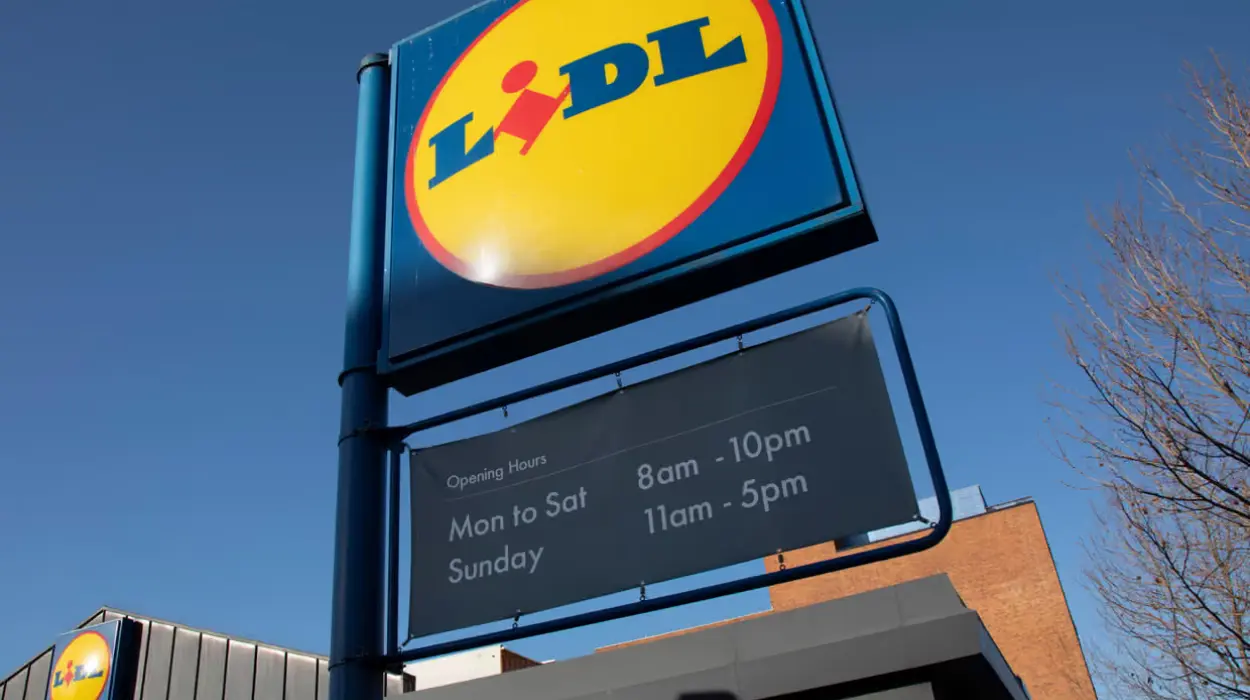UK (Parliament Politics Magazine) – German discounter Lidl closes in on Morrisons as the UK’s fifth-biggest grocer, fueled by increasing sales while shoppers seek cheaper groceries.
As reported by The Guardian, Lidl’s growth in recent months has nearly matched Morrisons. This has brought Lidl close to overtaking the chain as Britain’s fifth-largest supermarket.
How is Lidl closing in on Morrisons in the UK grocery market?
According to Worldpanel data, Lidl’s sales increased 10.7% in the three months to 11 August. This was more than double the 4.5% growth seen across the wider UK grocery market.
The discount retailer holds 8.3% of the market, just 0.1 points behind Morrisons’ 8.4%, while the Bradford-based chain’s growth remains sluggish at 0.9%. Morrisons is working to improve performance after a £7bn US-owned takeover by Clayton, Dubilier & Rice in 2021.
The UK’s leading supermarket, Tesco, recorded 7.4% sales growth, pushing its market share to 28.4% and leaving rivals behind. Sainsbury’s posted a 5.2% increase, holding 15% of the market.
Asda, the nation’s third-largest chain, faces ongoing challenges, with sales down 2.6% despite efforts under returning chair Allan Leighton. The discounter Aldi could overtake Asda, holding 10.8% of the market and posting 4.8% sales growth over the past three months.
Aldi and Lidl’s fast store expansion positions them to challenge the traditional “big four” and climb the ranks of UK supermarkets. Asda and Morrisons’ growth lags behind August’s 5% grocery inflation, suggesting lower sales volumes.
Worldpanel figures show inflation dipped 0.2 points to 5% in August, with dog food, sweets, and sparkling wine prices easing from July levels.
What did Fraser McKevitt say about grocery prices and consumer habits?
Fraser McKevitt, chair of retail and consumer insight at Worldpanel, stated,
“We’ve seen a marginal drop in grocery price inflation this month, but we’re still well past the point at which price rises really start to bite and consumers are continuing to adapt their behaviour to make ends meet.”
He said,
“What people pay for their supermarket shopping often impacts their spending across other parts of the high street, too, including their eating and drinking habits out of the home.”
Mr McKevitt said visits to casual dining and fast food outlets fell 6% compared with last year. Meanwhile, coffee shops continued to see rising sales over the same period.
He said,
“The humble fish finger remains as popular as ever and nearly one billion were sold in the past year, with more than half of households grabbing a box.”
Mr McKevitt added,
“The average home cook now spends three minutes less preparing the evening meal than they did in 2017, at just under 31 minutes. We can see this trend in the growth of things like microwaveable rice, ready meals and chilled pizza too, which have grown by 8%, 6% and 5% respectively.”
What sales trends reveal about UK households and inflation pressures?
UK shoppers cut back on dining out, boosting home spending, lifting branded goods sales 6.1%, ahead of 4.1% growth in own-label alternatives. Sales of top-tier own-label ranges, including Tesco’s Finest and Sainsbury’s Taste the Difference, jumped 11.5%.
The looming inflation peak could benefit Chancellor Rachel Reeves as she considers spending cuts or tax rises for the autumn budget.
Key facts about Morrisons
Morrisons, founded in 1899 in Bradford, grew into a top UK supermarket but has fallen from the “Big Four,” now facing competition from Aldi and Lidl.
In 2024, Morrisons’ revenue fell to £17bn from £18.3bn due to price wars, though underlying sales rose slightly excluding petrol forecourts. The chain undertook major restructuring in 2025, closing 52 cafés, 17 convenience stores, and several counters, cutting 365 jobs to lower costs.


